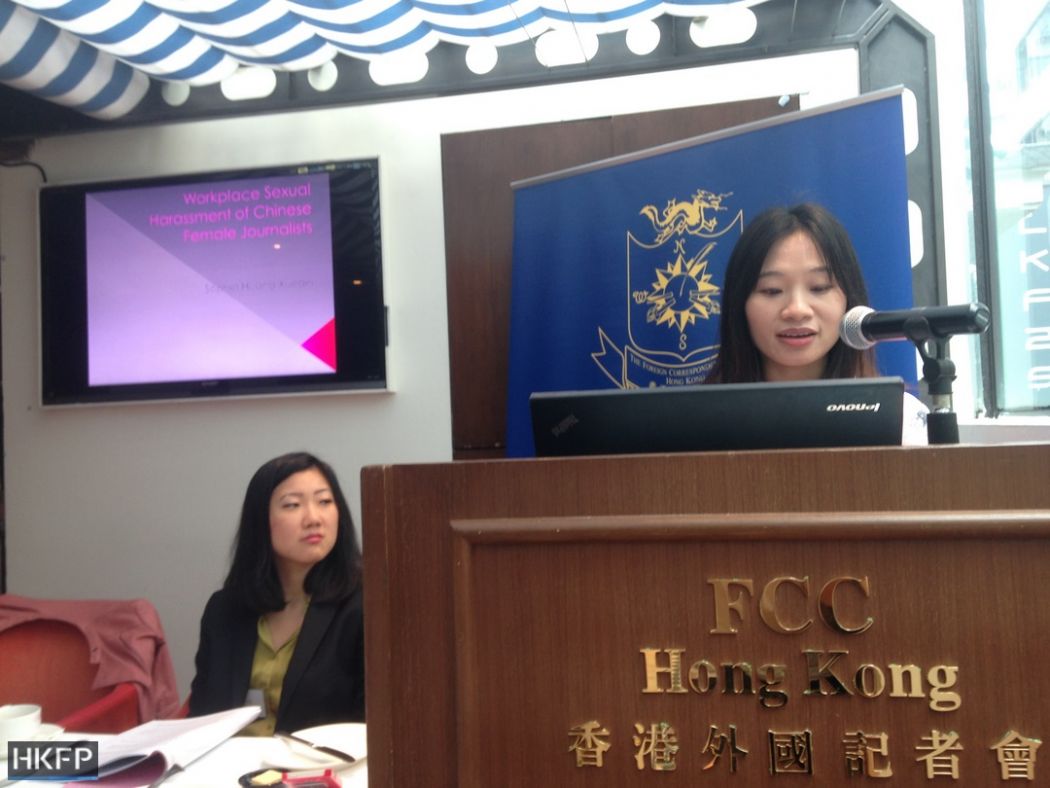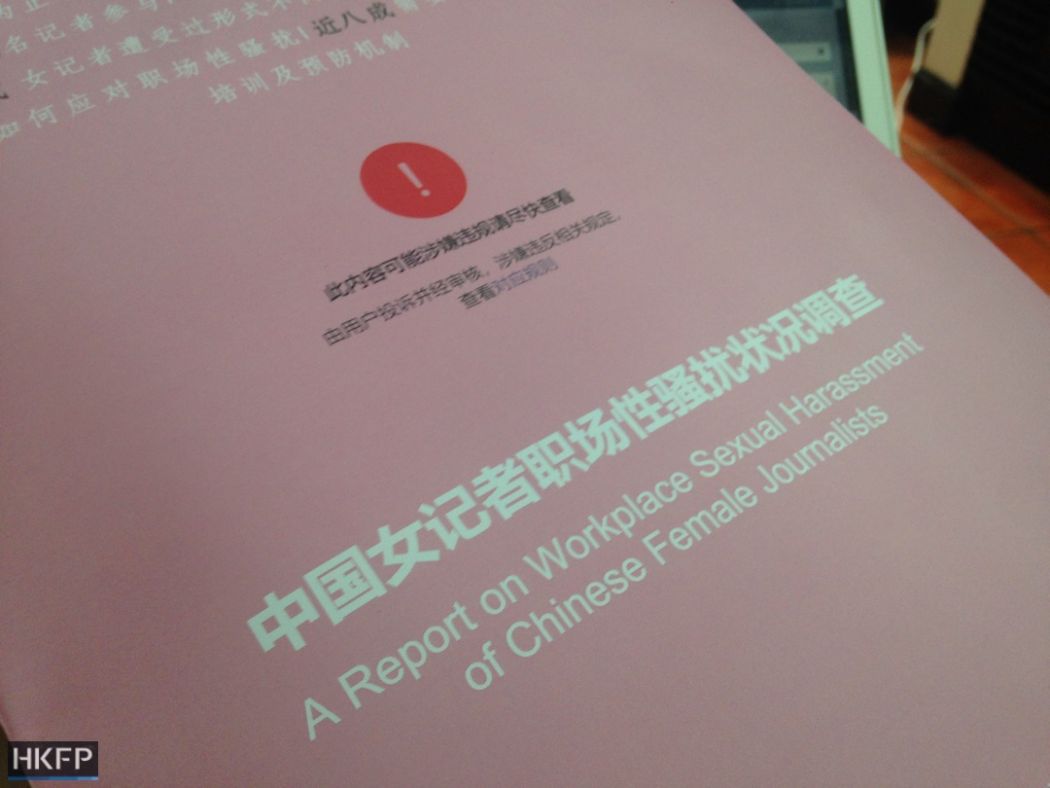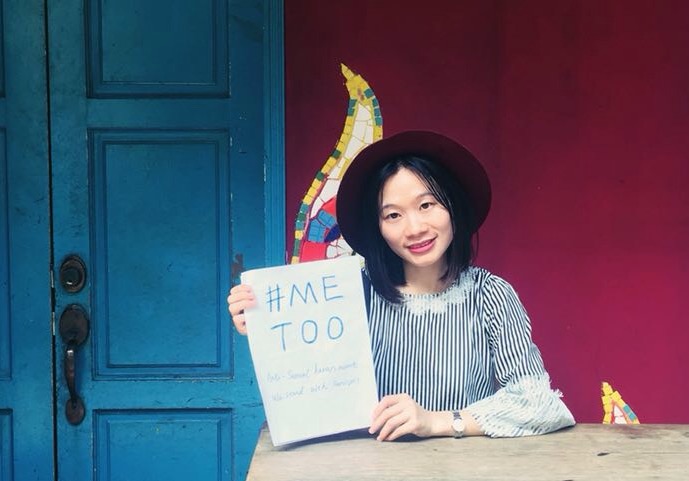83.7 per cent of female journalists in China have been subjected to varying degrees of sexual harassment in the workplace, a survey released in Hong Kong on Wednesday has found.
The survey was conducted by Sophia Huang Xueqin using an online poll. Huang is a journalist from Guangzhou who was inspired to act by her own personal experience with sexual harassment, and after hearing similar stories from fellow journalists.
According to Huang’s survey, 57.3 per cent of the victims chose to remain silent, with only 3.2 per cent reporting the encounter to their company, and only 0.6 per cent making a police report.

Of those who remained silent, over 60 per cent said they believed it would be useless and unhelpful to report the harassment, and almost half expressed concern that it would affect their privacy, career and personal lives. Almost half also said that they did not know the best way to resist workplace sexual harassment.
See also: No #MeToo in China? Female journalists face sexual harassment, but remain silent
“I think prevention and education is needed… because some things are kind of still a taboo for Chinese people to talk about – it’s absolutely not the topic you are going to talk about with your parents, so we don’t get the education from family, and even in university there is not that much about sex education,” Huang said.
Huang wrote that over half of the victims were between the ages of 25-34. “In this age range, students are graduating and entering the workforce, as they are working hard and feeling the pressure of competition, they must also experience more workplace sexual harassment than men.”

In an online survey lasting for over a month, starting in October 2017, Huang received 416 valid samples out of 1,762 responses, with the majority of valid responses from female journalists aged between 18-34 who were working for – or who had worked for – newspapers, magazines and other newsrooms.
The report recommended that media companies, as public supervisors, take the lead in establishing anti-sexual harassment mechanisms in the workplace, including prevention, education, investigation, confidential counseling, and punishment of offenders.
However, Huang urged caution in extending the report’s conclusions to the whole of the media industry in China due to the “[un]scientific nature of the questionnaire design, the unpredictability of the method of online distribution and possible sampling biases from online data collection channels as well as my limited personal capability.”
She said that the results may not present the entire picture, as it was limited to those who voluntarily completed the survey, but said that it was enough to show that the problem was serious.
Censorship
Huang said the #MeToo movement in China is still largely happening at universities, and had yet to extend to the workplace.

“The government has to play a bigger role, there is still a lot of space for them to improve. Because – in China – even though we are talking about sexual harassment, this word is still new to us. We don’t have a clear definition about sexual harassment… The government should allow people to talk about it, allow the lawyers or the experts to study about it, and should introduce a law to make a very clear definition about sexual harassment.”
Censors have deleted hundreds of social media posts featuring the tag “MeToo in China” and closed topic forums on the subject. An online petition launched by feminist activist Xiao Meili was deleted by censors soon after it was posted on WeChat and Weibo.
Huang said: “The government doesn’t really censor articles or cases about sexual harassment happening, they will censor a movement which was well organised or organised by groups of people. They fear… people com[ing] together to organise large groups or activities at the same time.”
Not-for-profit, run by journalists and completely independent. Contribute to our critical month-long HK$1m Funding Drive, help safeguard our independence and secure our operations for another year. Read how carefully we spend every cent in our Annual/Transparency Report.

[give_form id=”150839″ show_title=”false”]
